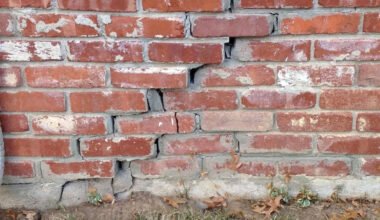Choosing between stone slabs and prefabricated countertops comes down to personal preferences. As a contractor, you can partner with suppliers to provide clients with a wide range of options. Supplies usually have extensive, ready-to-go inventories of natural, engineered, and prefabricated slabs. Here are a few things to know about slabs vs prefabs:
Sources and Availability
Prefab stone pieces come pre-cut and pre-polished in standard sizes. Suppliers import prefab stones or fabricate them at their stone yards. The pieces are designed for standard installations and feature finished edges. Stone slabs are cut from large blocks of natural or engineered stone. Natural stones include granite, marble, quartzite, and soapstone. They feature unique veining and patterns that provide timeless aesthetics.
You can select a slab and send it to a fabricator for custom cutting and polishing. Engineered stones include quartz and porcelain. They are made at the factory by mixing crushed quartz with binders and pigments. Natural, engineered, and prefab stones offer a wide range of colors, patterns, and textures to choose from. They can be used in high-end kitchens and bathrooms, as well as in commercial projects and custom remodels.
Quality and Variation
Slabs and prefabricated stones differ in quality based on their formation and fabrication methods. High-grade rocks, such as quartz, granite, and marble, are used for large-format installations. Natural stones are denser due to formation under heat and pressure. Fabricators may reinforce slabs with binders, sealants, or other compounds.
Slabs offer the following characteristics:
- Distinct patterns and coloration
- Structural consistency across cuts from the same source
- Compatibility with custom finishing processes
- Suitability for bulk ordering in large-scale projects
Engineered stones are also used and can be modified with specific colors, patterns, and sealants to increase resistance to heat and moisture. Prefabricated stones are produced to standard thicknesses and surface finishes but may have inconsistencies. They are typically used in rental units or general-purpose applications, whereas slabs are selected for builds that require custom dimensions or a consistent appearance.
Flexibility and Customization
Slabs offer a wider selection of colors, patterns, and veining, giving you more control over the installation. You can select a specific portion of the stone to achieve the same veining and a cohesive look. This technique, also called bookmatching, is suitable for large kitchens, islands, backsplashes, and water edges. They produce uniform installations with unique aesthetics.
You can also cut the slabs to specific dimensions and use various edge profiles, which allows endless customization. The slabs fit any space and offer greater design flexibility. With prefabs, you’ll get pre-finished edges, fixed sizes, and a decent range of patterns. This option may be limiting when working around corners or dealing with custom installation cutouts.
Installation and Turnaround
Prefabricated stones speed up your installation because the cutting and edge finishing is already done. Crews can finish installation quickly, especially in standard multi-unit housing projects. These pieces fit precisely into templates, but may require on-site modification when used in a custom installation.
Slabs offer a better option for customization, allowing for comprehensive planning and templating. As a contractor, you can take measurements and send them to the supplier to fabricate specific sizes for the installation. In such projects, there’s no big difference in the turnaround time, regardless of whether you use slabs or prefabs. Suppliers often maintain extensive inventories of slabs and prefabricated components, ready for delivery, which results in faster installations.
Find Quality Stone Slabs
Natural and engineered stones offer long-term value and customization, making the slabs a suitable choice for most installations. Prefabs also offer unique benefits and support quick, less-complex installations. Contact a reputable supplier today to learn more about prefabricated homes and stone slabs.



